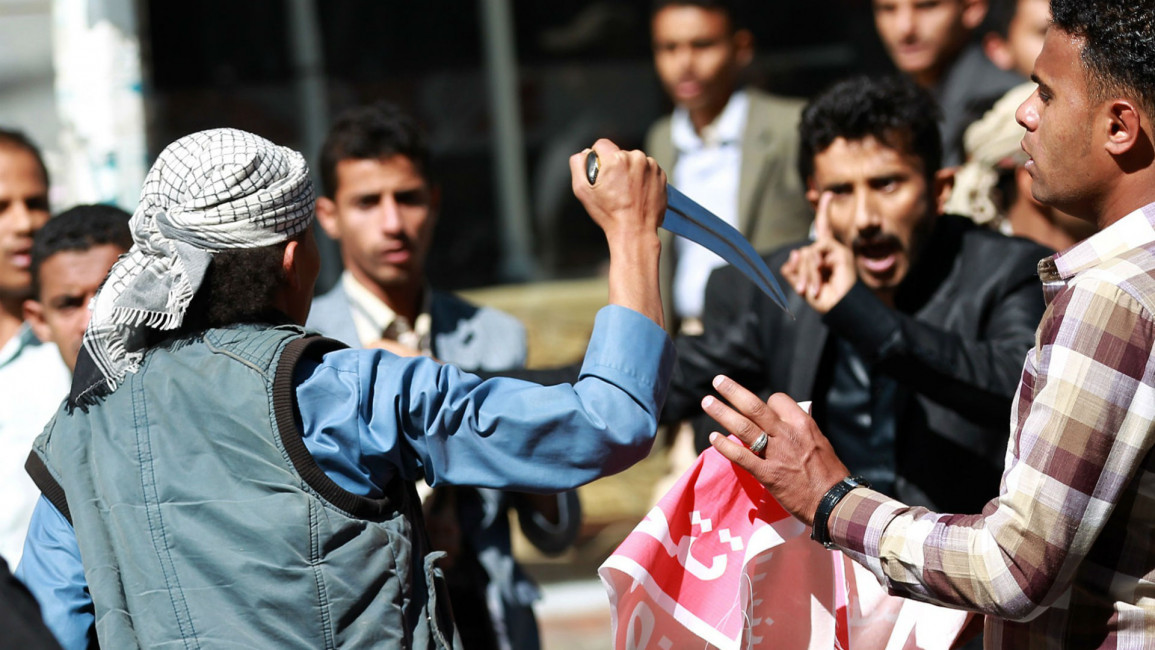
Yemen: Less than a war, more than a blockade
Sometimes, people become afflicted by the disease of vanity. They stop being able to tell reality and fantasy apart. Sometimes, when a person dons a Superman suit, he might believe this gives him super-powers, allowing him to fly from city to city, break through barriers, and vanquish enemies without suffering a single injury.
This, in short, is the story of the Houthis after they managed to seize power by force.
This is their story after they issued the so-called "Constitutional Declaration", through which the Houthi movement sought to impose its control on Yemen and bring about a new reality in a country rich in religious, cultural and political diversity, taking advantage of the catastrophic collapse of the Mashreq, the Arab East.
The brightest hopes
The Yemeni people offered the brightest model of peaceful revolution in the Arab world, in a country where there is barely a citizen who is not in possession of firearms or at best, melee weapons.
But despite being a poor country, Yemen is strategically significant. In addition to sharing borders with one of the world's top oil producers, Saudi Arabia, it overlooks the vital Strait of Bab al-Mandab, and is surrounded by a number of oil-rich countries.
It is thus inescapable that these countries would not allow Yemen to pursue major strategic choices without them having a say in the matter.
Saudi Arabia leads in this regard, having long had close ties with the forces dominating the political process in Yemen.
| The Gulf countries have once again set their eyes on Yemen, having been previously preoccupied with Iraq and Syria. |
Since the start of the popular uprising against the mafia state of the Saleh family and its associates, Saudi Arabia rushed to re-adjust the situation in the country, by setting the boundaries for what is permitted by the Gulf in terms of political change in Yemen.
The process resulted in the Gulf Initiative, backed by the UN, which reined in the revolution and confined its goals to removing Ali Abdullah Saleh from the presidency, subsequently replaced by Abd Rabbo Mansour Hadi.
The Gulf countries have once again set their eyes on Yemen, having been previously preoccupied with more pressing developments in Iraq and Syria. But as we speak today about renewed Gulf interest in Yemen, following the Houthi takeover of Sanaa, we must recall the images of war between the same Houthis and Saudi Arabia.
In November 2009, Saudi Arabia became directly involved in the conflict with the Houthis, after their umbrella group Ansarullah seized Jabal al-Dukhan near the border between Yemen and the kingdom. Each side blamed the other for the conflagration that threatened to turn into a full-blown war.
However, since then, Riyadh refrained from taking military action against the group.
Riyadh's concerns that al-Qaeda might slip in through the mountainous border region were possibly more pressing than its anxiety regarding the Houthis' growing military power. It seems the Houthis took this as a sign to create a buffer zone between al-Qaeda and Saudi Arabia.
Al-Qaeda's base of operations
After receiving a harsh blow in Saudi Arabia, most al-Qaeda leaders fled to Yemen, where they established their new base of operation.
Riyadh thus reluctantly accepted the presence of the Houthis, an Iranian-affiliated armed organisation on its southern border, in light of its function in guarding Saudi Arabia from al-Qaeda infiltratation or weapons smuggling.
But now that the Houthis have taken Sanaa and consolidated their hold on the Yemeni government, Iran has become a major player in Yemen. For Saudi Arabia, this crosses many red lines, especially in the context of growing Iranian power in the region.
| What can Riyadh do to influence events in Sanaa after the Houthis took control? |
The question that we must try to answer here is, what can Riyadh do to influence events in Sanaa after the Houthis took control with help from Riyadh's erstwhile ally, Saleh?
The question is particularly important in light of major political developments in the region and the world, including the comeback Russia has made on the world stage.
Indeed, Russia has been punishing the West for its interventions - including in Ukraine - by wielding its veto power at the UN Security Council on Syria, as well as on Yemen, to prevent the use of force against the Houthi rebellion.
Saudi Arabia is understood not to be considering a direct war against the Houthis at this stage. But this is not because it does not have the ability, but because it believes it can achieve the same outcomes using less costly means.
Riyadh has many cards up its sleeve to bridle the Houthis in Yemen. It can impose international an political isolation on the Houthis, effectively delegitimising their administration. Saudi Arabia can also step up support for the emerging administration in Aden, in addition to putting economic pressure on the already embattled Yemeni government in Sanaa.
The divisions in Yemen are a bad omen, and it is still too early to tell how the crisis of governance will evolve. However, there is no doubt that the Houthis' takeover will have dangerous repercussions.
Saudi Arabia may not wage direct war on the Houthis yet, but it will not sit idly by as Iran's allies consolidate power in Sanaa.
This is an edited translation from our Arabic edition.
Opinions expressed in this article remain those of the author and do not necessarily reflect those of al-Araby al-Jadeed, its editorial board or staff.




